
Written by: Amber Juman
Posted on: July 13, 2016 |  | 中文
| 中文
Karachi Cantonment Railway Station
“I didn’t tell him that I grew up in an ugly city that taught me how to look between dust and rubbish and potholes to find a splinter of glass that looked like unmelting ice, beautiful in its defiance of the sun.” – Kamila Shamsie, Kartography
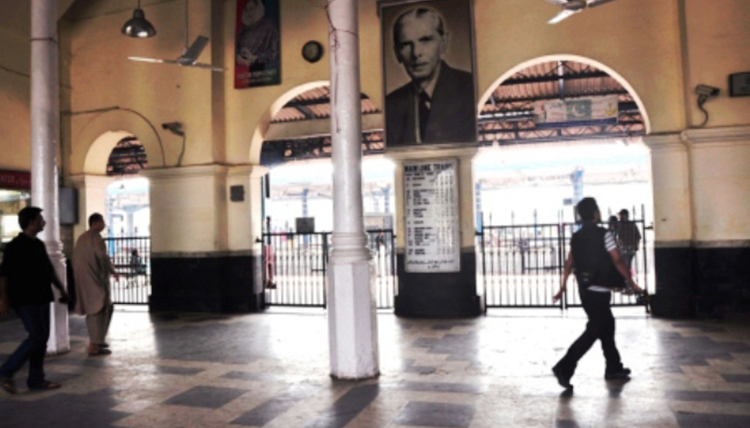
City of lights, that's what it used to be called. City of terror and poverty, that's what it has become. Once every year, life – or maybe we should say destiny – brings me to the gates of the Cantonment Station of Clifton. Once every year I have to board that train, forget about belonging to the posh areas of Clifton, join the hustle and bustle, and face the reality of my city. I remember the time when we used to live in Mirpurkhas and would come to visit Karachi, and I would be the one to be jostled and looked down upon. We as humans so easily forget our origins. Thinking of that time makes me nostalgic. Everything was so different then…the trains, the people, me, and especially Karachi. If there is anything that hasn’t changed, it is the ever-demanding coolies.
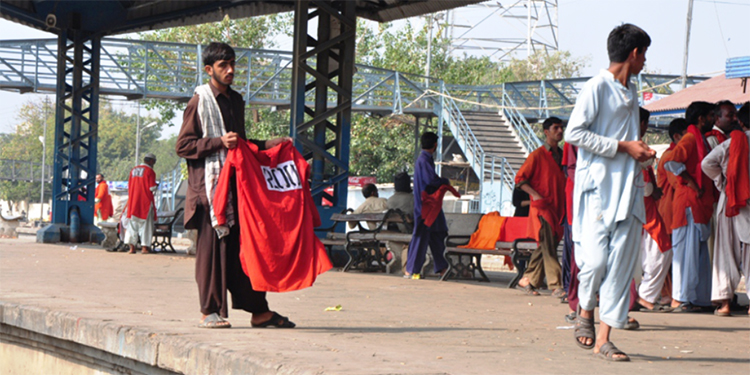
Transportation plays a key role in any nation’s development. The Indo-Pak railway system was introduced during the British Raj. At that time cargo from Karachi harbor was shipped across India using steamers of ‘Indus Flotilla Company’. The building of Cantt. Station Karachi was constructed back in 1898. Before that, it was known as Frère Street Railway Station. It was one end of the first section constructed between Karachi and Kotri. The construction of Cantt. Station was one of the first steps taken to reduce the lead time of shipments.
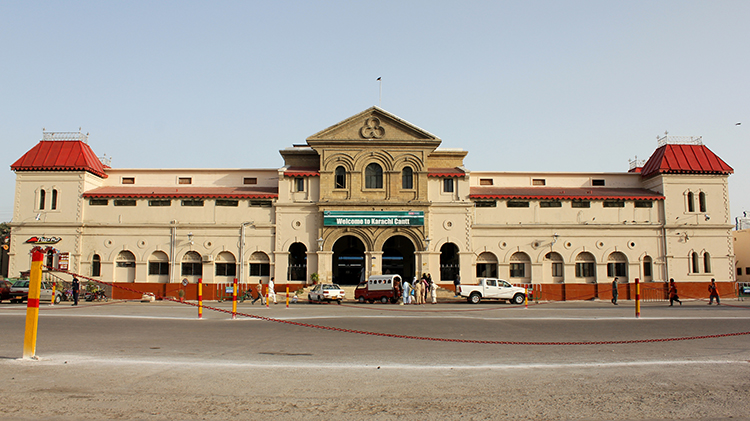
I sit in my compartment thinking of a time when this very city had been so different. When there was more value for life than money. We have come such a long way. Some would say we have become modern and progressed in life, but one should wonder, is the construction of more bridges and more buildings the definition of progress? The voice of a girl brings me back to reality. I look at her and it seems like I’m being shown one of the sad faces of my city. She enters my compartment, begging for money, and I smile in sympathy for her and pity for my city. Her ragged clothes, sunken eyes and bare feet pull at my heart as I search through my bag for some pennies. The sharp sound of a slap makes me look up with a gasp. The train constable is standing over the cowering girl. The pennies fall from my hands and my eyes tear up. Before I can utter a word, the constable has dragged the girl by her collar and thrown her out. He looks at me as if expecting praise. I turn towards the window, having given up on the last threads of hope for my city. My gaze falls on those lying on the platforms, on those selling in the stalls, on those families whose eyes beseech me for help. Like every year, I once again leave everything behind, as the train starts its journey.
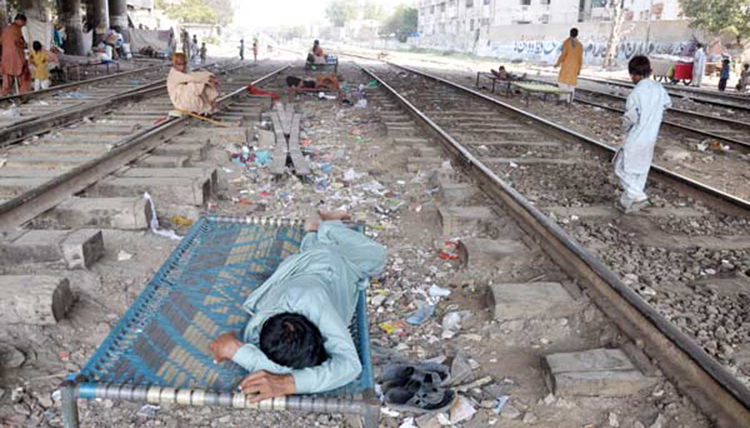
“This was the Karachi now – barbed wires protecting consulates, the pretentious covering themselves with faces of those who were hiding behind those barbed wires. This was Karachi – gaudy and luxurious, with a façade of glamour, ignoring the truth underneath. But Sophie was no cynic, and still loved the city she had returned to. “You can’t hate what’s yours”, she smiled to herself.” – Umair Naeem, Drowning Shadows
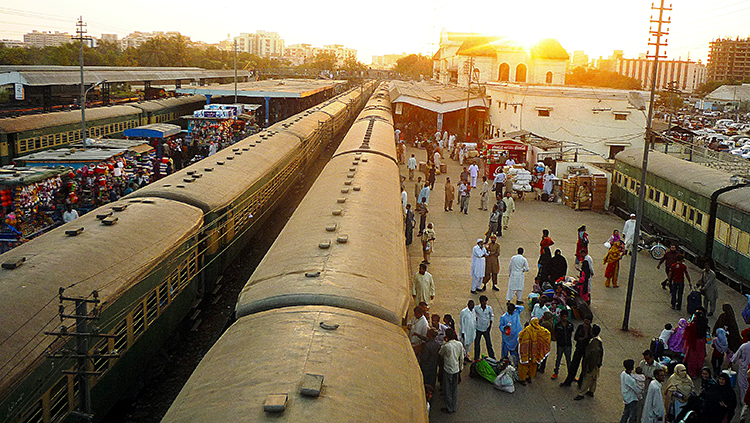
You may also like: